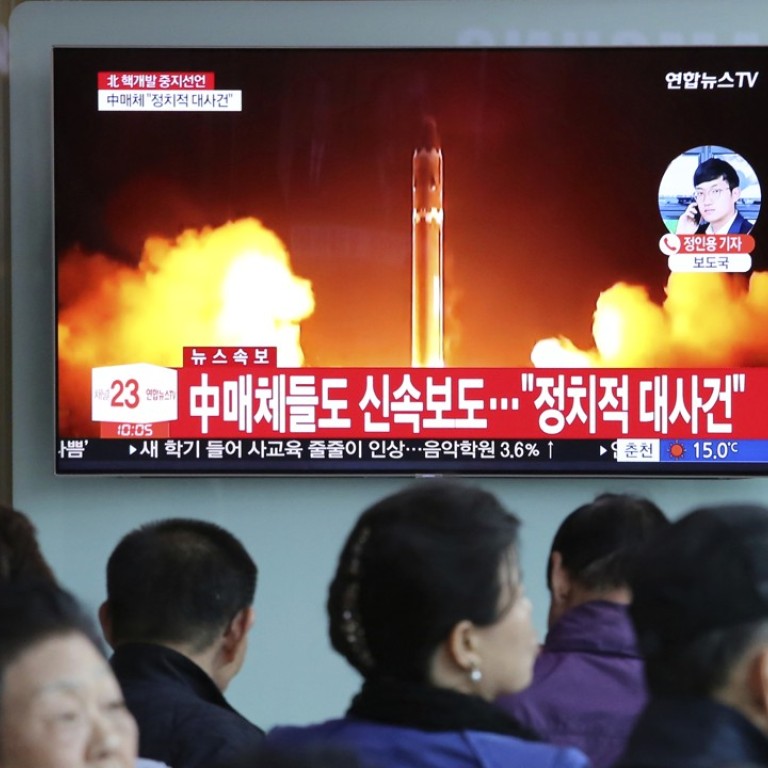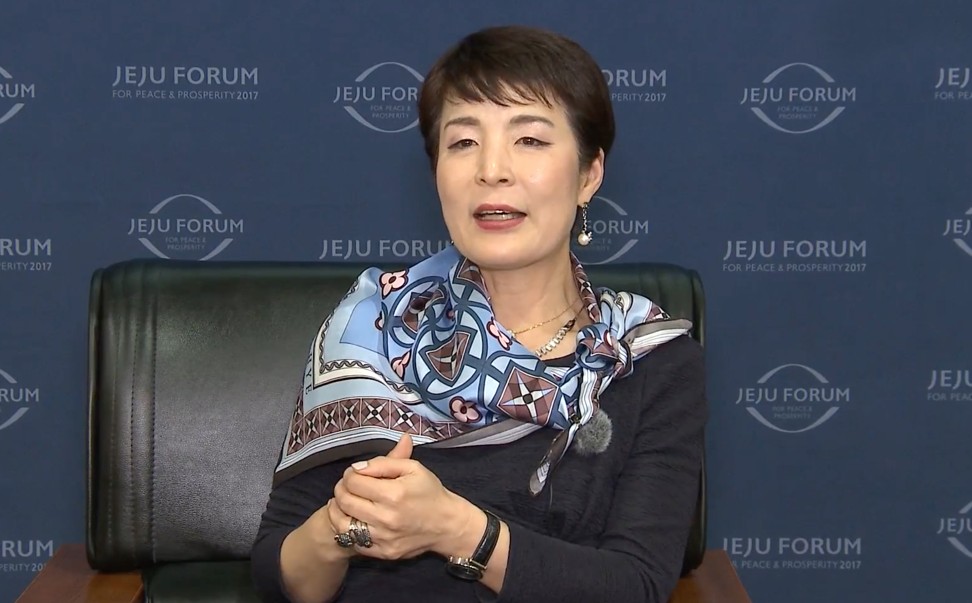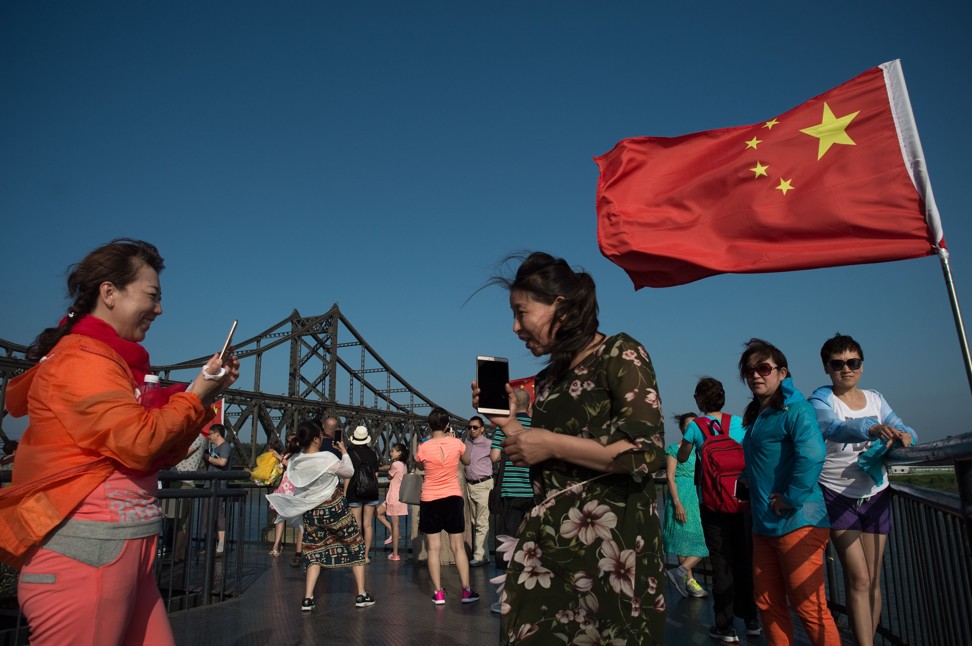
Denuclearisation of Korean peninsula will be hard to verify, South Korean official says
Instituting a fully verifiable dismantlement process will be difficult and time-consuming, Seoul’s ambassador for public diplomacy says
Despite the pledges made by the leaders of North and South Korea at their landmark summit meeting last month, the peace process on the Korean peninsula remains fragile and achieving the goal of complete denuclearisation remains a major challenge, a top South Korean official said.
Ambassador for Public Diplomacy Enna Park told the South China Morning Post that instituting a fully verifiable dismantlement process would be a difficult and time-consuming procedure, especially since the international community did not have all the facts about North Korea’s nuclear capabilities.
“Pyongyang possesses a higher level nuclear programme than Libya and South Africa had in the past, and we don’t know the full details,” she said, adding that it took more than a year for South Africa to completely dismantle its nuclear weapons, and the time frame would be longer for North Korea.
“While verification is key [to the denuclearisation process], how to make a reliable mechanism is the big question.”
Only when the dismantlement process had been verified could the international community consider lifting its sanctions on North Korea, Park said.
Her comments came after South Korean President Moon Jae-in and North Korean leader Kim Jong-un met last month and agreed to the complete denuclearisation of the peninsula.
North Korea’s nuclear facilities have not been inspected by the International Atomic Energy Agency since 2009. Its inspectors were expelled in April of that year and Pyongyang said it had reactivated its nuclear weapons programme.
“We can agree on the final goal of denuclearisation and the need for a peace mechanism on the peninsula, but verifying the method is difficult [to agree on],” Park said, adding that Seoul needed the full support of all stakeholders in the region to achieve the objective.
A South Korean diplomatic source who took part in the 2003 six-party talks on Pyongyang’s nuclear programme, reiterated Park’s comment regarding the lack of available information.
“We don’t know how many nuclear warheads or how much uranium North Korea possesses,” this person said, on condition of anonymity, adding that Pyongyang’s refusal to allow inspections for almost a decade had made the verifying process even more difficult.
Zhao Tong, a fellow with the nuclear policy programme at the Carnegie-Tsinghua Centre for Global Policy in Beijing, agreed that establishing exactly what nuclear capabilities Pyongyang had would not be easy.
North Korea could easily disguise its nuclear facilities as regular industrial plants, he said, adding that Pyongyang would also be well aware that any security guarantees offered by the US could easily be rescinded so it would likely want to hold on to its nuclear weapons in the short term.
Park said that another possible stumbling block for the denuclearisation process would be agreeing a timeline.
“[North Korea] would want a non-aggression guarantee [from the US] to ensure the regime’s security and provide a favourable environment for [the country’s] economic development,” she said.
Concerning China’s involvement on the Korean peninsula, Park said that Beijing was a significant player in the region and its decision to support the international sanctions against Pyongyang had been a contributing factor in Kim seeking talks on the issue.
“China is sending a clear message [to North Korea] that this is a very precious opportunity for Pyongyang to engage in dialogue, and this is no different to the message coming from South Korea,” she said.
“Without China’s engagement it would have been difficult to bring North Korea to the [negotiating] table.”
Still, Park said, trilateral talks involving the two Koreas and the US – but not China – were likely to take place after the proposed summit meeting between President Donald Trump and Kim.
“The trilateral talks would confirm any agreements made during the Trump-Kim summit. This is a matter of sequence,” she said.
“But finding a mechanism to formally end the Korean war or sign a peace treaty remains an open question.”



